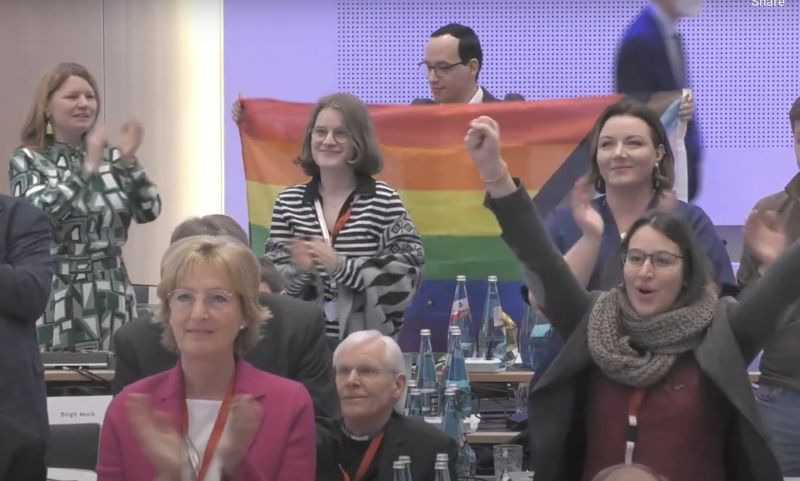
Pope Francis on female deacons: ‘No’
 Pope Francis sits down for an interview with Norah O’Donnell on CBS’ “60 Minutes,” which aired Monday, May 20, 2024. / Credit: CBS News/Adam Verdugo
Pope Francis sits down for an interview with Norah O’Donnell on CBS’ “60 Minutes,” which aired Monday, May 20, 2024. / Credit: CBS News/Adam Verdugo
CNA Staff, May 21, 2024 / 11:26 am (CNA).
Pope Francis has once again come out strongly against an ordained female diaconate, reiterating what for the Holy Father has been a consistently firm stance against women becoming clergy.
The pope made the remarks this week in an interview with CBS News anchor Norah O’Donnell during an appearance on the network’s flagship magazine program, “60 Minutes.”
“You will have many young boys and girls that will come here at the end of next month for World Children’s Day,” O’Donnell said to the pope at one point during the interview. “And I’m curious, for a little girl growing up Catholic today, will she ever have the opportunity to be a deacon and participate as a clergy member in the Church?”
“No,” the pope replied.
Pressed by O’Donnell as to whether a female diaconate was “something you’re open to,” Francis replied: “If it is deacons with holy orders, no.”
“But women have always had, I would say, the function of deaconesses without being deacons, right?” he said. “Women are of great service as women, not as ministers, as ministers in this regard, within the holy orders.”
The Holy Father in the interview stressed the importance of women’s roles in the Catholic Church, describing them as “the ones who move changes forward, all sorts of changes.”
“They are braver than the men. They know how best to protect life,” the pope said. “Women are masterful custodians of life. Women are great. They are very great. And making space in the Church for women does not mean giving them a ministry, no. The Church is a mother, and women in the Church are the ones who help foster that motherliness.”
“Don’t forget that the ones who never abandoned Jesus were the women,” he pointed out. “The men all fled.”
Francis last year reaffirmed the impossibility of women becoming priests, or even modern Church deacons, stating that “holy orders is reserved for men.”
The pope in his discussion with O’Donnell — his first in-depth interview with a U.S. broadcast network — touched on a wide variety of subjects, from immigration to war to antisemitism.
Here are some other highlights from the Holy Father’s remarks during the interview, which aired in full on Monday evening:
On immigrants fleeing violent countries for safer nations:
“The solution is migration, to open the doors to migration. For an immigration policy to be good, it must have four things: for the migrant to be received, assisted, promoted, and integrated. This is what is most important, to integrate them into the new life.”
On washing the feet of female prisoners at a women’s prison in Rome on Holy Thursday:
“It is true, this time it was only women because it was a women’s jail. And the message is that men and women, we are all children of God. That men and women we are all apostles and we all can lead. Let us not forget that the bravest apostles, the most courageous, were the women: Mary Magdalene, Mary Salomé, and Mary of Santiago. They stayed with Jesus to the very end.”
On climate change:
“Unfortunately, we have gotten to a point of no return. It’s sad, but that’s what it is. Global warming is a serious problem. Climate change at this moment is a road to death. A road to death, eh? And it is an artificial climate change, no? Something provoked, not the normal climate change, right? …
“In great measure, [wealthy countries are to blame], because they are the ones that have more of an economy and an energy based on fossil fuels that are creating this situation, right? They are the countries that can make the most difference, given their industry and all, aren’t they? But it is very difficult to create an awareness of this. They hold a conference, everybody is in agreement, they all sign, and then bye-bye. But we have to be very clear, global warming is alarming.”
On his plans for retirement:
“It has never occurred to me. Maybe if the day comes when my health can go no further. Perhaps because the only infirmity I have is in my knee, and that is getting much better. But it never occurred to me.”








